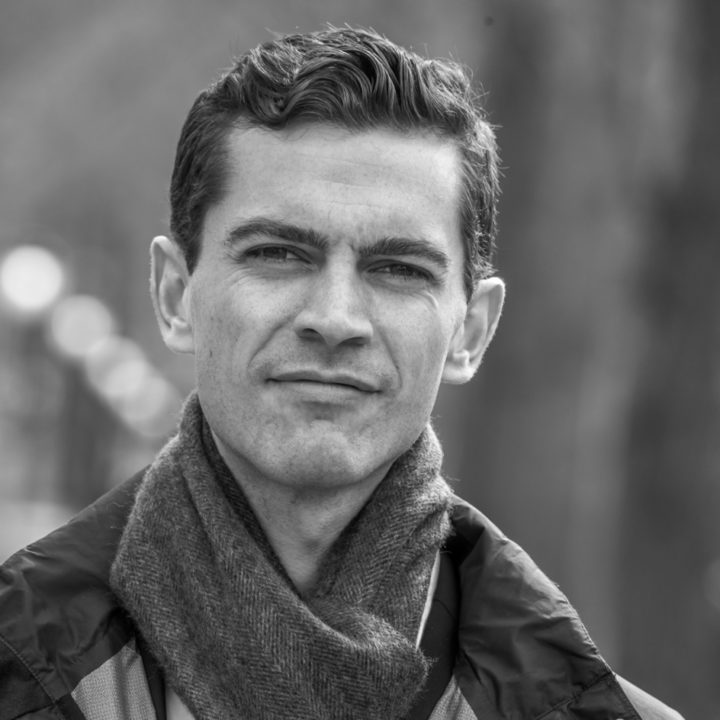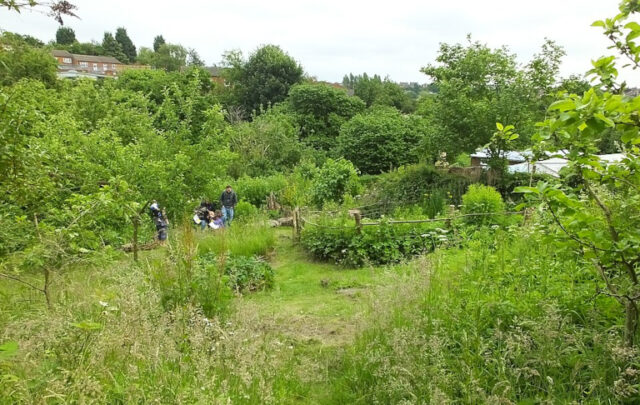Even after decades of talk, hundreds of campaigns, thousands of articles, and millions of dollars spent building momentum to prevent climate change, the public still doesn’t know how best to nudge the economy toward collective safety and survival. While it may not still be possible to ensure safety and survival for anyone, it’s worth working to save lives, human and non-, until we can’t. It’s still important to figure out and communicate actions people should be taking to move the economy and atmosphere toward decarbonization.
So what can we each be doing in our lives to slow climate collapse and why should we do those particular actions? Toward the bottom of this article you’ll find a substantial, though incomplete, list of things people can do to effectively aid progress on decarbonization. I divide the list between actions for people with and without discretionary income as this is probably the single greatest factor determining how people can impact the issue in their lives. Importantly, in figuring out how individuals should act, the key difference doesn’t lie between consumption changes and political action, but in the degree to which one’s actions are coordinated with others: i.e., a movement. The list is unordered because such rankings are unhelpful in this issue. Every intervention will be more or less impactful depending on their particular circumstance and there’s no rigorous way to hierarchize effective actions. Climate change is too big for that.
Before we get to the list, let’s first consider some of the factors that have caused such confusion on how to impact the issue so that we can strive for greater clarity now and avoid similar pitfalls going forward.
Very Confused Activism
Part of the confusion people have about how they can impact climate change, of course, has come from fossil fuel industry propaganda and corrupt politicians muddying the conversation in order to deliberately mislead the public. This phenomenon has been well-documented and has a straightforward remedy: ignore any message funded by fossil fuel companies or coming out of the mouths of fossil fuel-funded politicians (Republican or Democrat).
The trickier source of confusion is a long-running, mainstream message suggesting that the best way individuals can impact climate change is through isolated consumer lifestyle tweaks. Messages like stop eating meat or stop flying planes or stop driving cars have largely dominated the conversation on what we can do to impact this issue. These are important actions to take, but only when they’re done in the context of a concerted, collective campaign.
What these messages are advocating are boycotts. An individual’s cutting meat or flying can impact climate change only if many, many people participate in such boycotts. While it is certainly worth trying to get many people to participate, mainstream media articles and even activist messages rarely discuss the fact that such boycotts typically only impact industries when conducted at scale and when they’re effectively targeted. Boycotts work when directed at a particular company and a particular behavior of that company and then are joined by many people. Think, for instance, of boycotting Nike (specific company) for its sweatshop labor (specific behavior). This kind of boycott can be very effective and have cascading effects through the entire market, changing the behavior of other companies until the whole industry has shifted. But the need for targeted campaigns is rarely incorporated into calls for lifestyle tweaks. There’s instead just a vague admonition to “go vegan” or “stop driving.” A lot of the calls to “go vegan” have resembled sporadic shouting into a vacuum lacking a shared set of values or political goals rather than a coordinated effort to change anything. The message has become more a social goal post—are you in or are you out?—than a concentrated campaign to shift the food system.
A more effective strategy to reduce the impact of meat consumption might look like a campaign to get a lot of people to boycott a few particular meat production companies that engage in destructive behaviors like building CAFOs, clear-cutting rainforests, and abusing antibiotics. Shutting down or pressuring these companies can have cascading impacts that result in making meat a lot less carbon- and land-intensive and cruel. Yet, vegetarian and vegan movements simply haven’t achieved this outcome in the many decades they’ve been active: meat consumption is rising rapidly around the world with devastating consequences; the industry is more destructive than it’s ever been.
The consumer lifestyle focus has also confused the issue by asserting that an apocalyptic problem—i.e., the permanent collapse of global civilization becoming inevitable within a decade—can be prevented primarily by acting out relatively small-scale behavioral changes at a gradual pace. This is not only false, but it can turn off a lot of potential allies by sounding condescending and delusional, leaving people baffled or disengaged. If people want to go vegan or stop flying in airplanes, that’s good and important and we should encourage that. But it’s absolutely insane to suggest that those particular behavior shifts should be held up as the best ways to halt complete civilizational collapse.
Some of the confusion about how to confront climate change has also come from the debate between “individual actions” and “collective actions.” In this framing, individual actions are cast as things like foregoing meat and cars in one’s everyday life versus collective actions like protesting and voting. This doesn’t make much sense. Anything an individual person does, whether voting, protesting, or cutting meat is an “individual action.” Meanwhile, consumer actions—typically cast as “individual”—can be done collectively, like by purchasing solar panels as a cooperative or joining a mass boycott; in fact, these actions are only impactful when done collectively. The more meaningful category distinction is between consumer and civic actions, but both consumer and civic actions can be done in isolation or collectively. In most circumstances, an individual’s actions, whether civic or consumer, become most impactful when done at a mass scale coordinated with others, but remain largely ineffectual when done alone.
There’s also a frequently asserted point that leaders should model low-carbon lifestyles so that other people will voluntarily adopt them. Whether true or not, this argument is still based on the assumption that massive, global boycotts or altered purchasing patterns are the most effective ways to decarbonize the global economy, which may or may not be true. But in any case, it’s a huge assumption to make—and not necessarily supported by robust data—especially when there are other options like organizing for holistic policies like a Green New Deal or organizing politically to regulate industries.
Another important distinction that often gets confused is the difference between reducing one’s personal carbon emissions and the extent to which one individually impacts climate change. The relationship between reducing one’s personal emissions and impacting climate change are not necessarily correlated positively. One could eliminate the greenhouse gas emissions they contribute to the world and have absolutely no positive impact on climate change, or even a major negative impact. A vegan, non-flying CEO of ExxonMobil who lives in a carbon neutral yurt is not mitigating climate change even if he reduces his personal carbon emissions to (theoretical) zero. He’s still perpetuating an industry that’s massively responsible for climate change. By the same token, another person could have a positive impact on reducing the effects of climate change, like by working to develop a new means of storing electricity or sequestering carbon or drafting a Green New Deal, while still flying all over the place and eating lots of meat. When we’re talking about what people can do to mitigate climate change, it’s more important to dedicate actions to influence the systems that maintain a fossil fuel economy than making Excel spreadsheets tracking one’s own personal carbon emissions.
So Who Should Do What?
Many of the studies and articles that rank “the best” actions to impact climate change conclude that things like abstaining from meat, flying, and procreation are at the top of the list. It makes sense; people are busy and just want to know the one thing they can try to incorporate into their day. But such rankings are invariably unhelpful and unrigorous. The fact is, there is no “best thing” and there are no easy little tweaks that will amount to mitigating climate change. We each have to do a lot.
Further, such lists are generally written for a narrow audience: affluent, educated people. Aside from the fact that these prescriptions tend to omit the fact that unless many people engage in such boycotts collectively they’ll have no impact on anything, it’s unfortunate that these lists are written for such a small and narrow population. While the implicit audience is the educated affluent, they are often explicitly prescribed as actions everyone should take. But it’s not realistic to prescribe a few universal behavioral changes to everyone since they certainly do not apply to most people (most people don’t fly) and not everyone is capable of committing to these changes (many cannot afford the time and money necessary to completely reform their diets, for instance).
So, with that in mind, the list below attempts to suggest actions relevant to a broader set of people. It’s still written for a Global North audience because it’s not my place to tell people in the Global South what they should be doing about climate change. Many such communities are already on the frontlines of both climate disasters and activism; they have enough to worry about adapting to these changes and fending off predatory extraction. I’ve tried to provide a variety of non-ordered actions specifically designed for two groups: people with stable access to discretionary income and people without; this factor has probably the single biggest impact on how people can affect climate change.
[slide-anything id=’3472166′]
In the U.S., given that almost half of Americans can’t afford basic necessities at any given time and that about three-quarters carry significant debt, it’s fair to assume that no more than half of Americans have a stable source of discretionary income at hand at any given time. Depending on how one defines “stable” and “discretionary,” it’s often probably a lot less than half.
Here’s the List
So what are important actions for impacting climate change that people without access to discretionary income can take? In no particular order, here are some ideas:
- Join a movement: Extinction Rebellion, Sunrise Movement, The Climate Mobilization, DSA Ecosocialists, and 350.org are a few examples. These groups all have local chapters. Email, call, or go say hi to the organizers in your area, go to the events, get deeply involved.
- Block fossil fuel infrastructure or other fossil fuel practices. Doing this in the context of a movement is better than going it alone, but it is one of those few individual actions where doing it alone could actually have some outsize positive impact. Starting to get involved in organizations like those above can help point you toward this kind of sabotage. You can also disrupt oil mogul meetings.
- Self-educate about this problem, its solutions, its consequences, and all the huge ramifications of collapse so as to internalize what’s at stake.
- Talk with everyone you know about it, at work, at home, at holidays. Engage people in a way that’s welcoming and compassionate, but also truthful.
- Unionize. Then organize at work with demands that go beyond workplace equity to include related decarbonization goals, like divestment or changing the practices of the company (especially helpful in fossil fuel-adjacent industries).
- Strike. Birth strike. Work strike. School strike. Just stop participating if you can. The more economic disruption from your strike the better. So, a work strike is better than a school strike.
- Vote only for people who advocate strongly for Green New Deal-style policies—and whose backgrounds plausibly suggest they’ll follow through—no matter their or your party allegiance. Engage and/or annoy any elected officials who don’t.
- Pay attention to energy decisions made by local offices like city councils and utility commissions. You can often publicly intervene in these decisions.
- Contact to your electricity provider urging them to purchase their electricity from non-carbon sources (nuclear, solar, wind, hydro—biofuels are technically renewable but still emit greenhouse gases).
- Convert your car to a biofuel (may not be carbon neutral, but for vehicles it’s still better than fossilized carbon) and then help your neighbors do the same, and then propose a campaign to the movement you joined.
- If you can handle taking on student loans, earn a degree in a subfield focused on climate and energy related issues and try to work in this area.
- Buy local goods and food where possible and encourage others to do so. Join a campaign for this. Shorter supply chains are absolutely necessary for decarbonizing.
- Organize neighbors to collectively generate basic necessities without fossil fuel inputs: pool money to start a community farm, purchase solar panels, or support local manufacturers producing goods from local and regional resources.
- Participate in city planning processes to nudge decisions toward more walkable and bikeable, more dense, and more self-sufficient urban spaces.
- Cultivate relationships with community and political leaders and pressure them on municipal decarbonization decisions, like making city buildings carbon negative and energy positive, or rejecting new fossil fuel development, or mandating non-carbon energy production on new buildings.
There are plenty of other actions, but this is a good start for generating ideas about how someone with little or no discretionary income can have a positive impact. Most of these actions also have the benefit of positive cascading effects—that is, doing one of them can lead to doing others, or can lead to progression within that category of action (like participating in city council meetings can escalate to running for a city council seat). They also can cascade through one’s social group.
For people who do have discretionary income, there’s obviously a huge range of how much money people within that group control, and so variability in what actions they can take. A billionaire could single-handedly decarbonize the electricity production of several small cities; but instead of fantasizing about benevolent billionaire unicorns, let’s instead focus on people who have discretionary income in the thousands of dollars. That is, someone who can live comfortably on a steady income and also throw around a few thousand dollars per year. People in this category can, generally speaking, take all of the actions in the above bullet list. And in fact, with more money, they have more protection from legal consequences than those with less money, so they should be doing more to take those almost-illicit actions listed above.
- Divest your assets from any fossil fuel or adjacent companies. Don’t care about your 401K; the whole future is at stake.
- Quit your job and dedicate your professional life to this issue. No, really. This is a thing people are already doing and it’s necessary that many, many more people do it.
- Pursue a degree in a sub-discipline focused on decarbonization. For example, if you pursue a degree in a STEM field, focus on non-carbon energy engineering or how to grow food at scale without fossil fuel inputs; the humanities and social sciences have perhaps an even more vital role to play. One might focus on political history of energy, for instance, or explore this huge transformation through literature.
- Invest in renewable energy companies or start a renewable energy company or a community renewable energy project.
- Run for office.
- Decarbonize your own home and life as much as possible (solar panels, electric vehicles, local non-carbon food, taking trains, etc.) and encourage neighbors to do so.
- Donate to realistic politicians (see: ones who recognize the reality of climate collapse) and withhold donations from politicians that fail to sufficiently support realistic legislation like a Green New Deal.
- Donate to realistic advocacy organizations, that is, the ones like those mentioned above treating climate like the existential emergency it is.
- Fund scholarships for other people to become educated and active in this issue.
- Become an inventor and discover some way of removing CO2 from the atmosphere, or storing energy more efficiently and without lithium or cobalt.
- Invest in creative projects like community art and pro-climate advertising, film festivals & documentaries, and other media (e.g., The Trouble).
- Invest money in community agriculture and non-carbon manufacturing projects.
- Help fund campaigns to change local and state laws that prohibit decarbonization strategies like microgrids. There are many such sneaky little laws standing in the way of energy transition that need dedicated, stubborn advocates with resources to overturn.
- Invest money in research for decarbonization technologies.
- Donate to legal funds for protestors who’ve been jailed for trying to save lives.
There are many other actions people with and without money can take. This is just a brief list of some that can both give people an individual impact and, if done collectively, go a long way to mitigating at least some effects of climate collapse. While a lot of people taking these actions may not “stop climate change,” at the very least they can begin to implement systemic shifts that could soften the impacts of collapse and save a lot of lives.
























